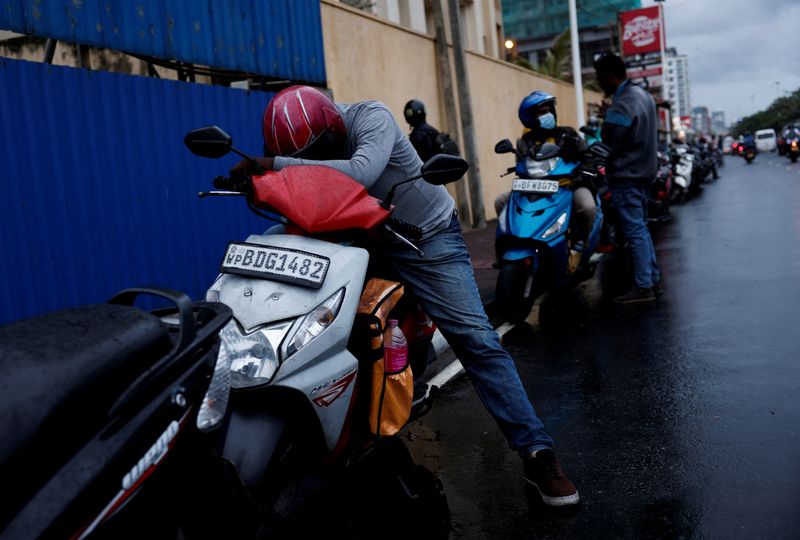By Uditha Jayasinghe
COLOMBO (Reuters) -Crisis-hit Sri Lanka will present a debt restructuring plan to the International Monetary Fund by the end of August, in a bid to win approval for a four-year funding programme, the prime minister said on Tuesday.
Economic mismanagement and the aftermath of COVID-19 have left the cash-strapped country of 22 million people unable to pay for essential imports of food, fertiliser, medicines and fuel because of a severe dollar crunch.
Inflation reached 54.6% in June as the Indian Ocean nation battles its worst economic crisis in decades, and the central bank is expected to raise rates at its next policy announcement on Thursday to rein in prices.
Speaking after a recent visit by an IMF delegation, Prime Minister Ranil Wickremesinghe outlined a road map in parliament to chart a way out of the crisis for the Indian Ocean island.
"We are now participating in the negotiations as a bankrupt country," he said, referring to the talks with the global lender. "Therefore, we have to face a more difficult and complicated situation than previous negotiations."
Despite a suspension of repayments on about $12 billion of foreign debt in April, Wickremesinghe said Sri Lanka still had payments of nearly $21 billion lined up until the end of 2025.
It faces strong headwinds, with the central bank estimating a contraction in growth of 4% to 5% this year, with inflation to hit 60% by year-end, he said, though the government targets a smaller contraction of 1% in growth next year.
After reaching a staff-level agreement with the IMF, Sri Lanka aims to hold a donor conference with "friendly countries" such as China, India and Japan to secure more loans through a "common agreement," Wickremesinghe told lawmakers.
Last week, the IMF said talks with Sri Lanka had been "constructive", raising hopes it would soon grant preliminary approval for a desperately needed financial support package.
Analysts warn that rate hikes will have little impact in reducing galloping prices, however, since they are largely being driven by higher fuel costs.
This week, authorities extended a closure of schools, told public servants to work from home and limited fuel distribution to essential services as the country struggles to pay for new fuel shipments.
The crisis comes after COVID-19 hammered the tourism-reliant economy and slashed remittances from overseas workers.
It has been compounded by the build-up of huge government debt, rising oil prices and a ban on the import of chemical fertilisers last year that devastated agriculture.

Weeks of sometimes violent protests led to the resignations of key ministers in May, leaving President Gotabaya Rajapaksa and Wickremesinghe struggling to stabilise the situation.
Sri Lanka owes at least $3.5 billion to China and other countries and global investment funds that have also lent tens of billions to Colombo want assurances that any debt relief they provide will be matched by Beijing.